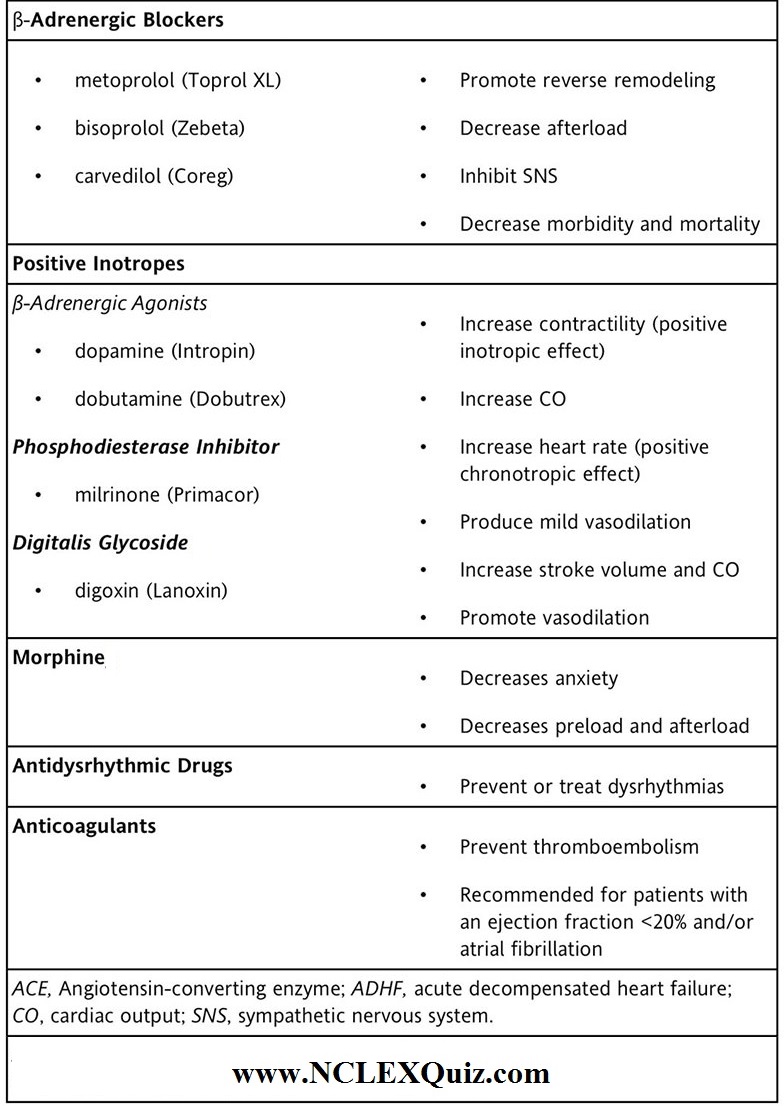Here is a capnography cheat sheet. It comes in handy from time to time For a printable version of this click on cheat sheets to your below, or click here.

Here is a capnography cheat sheet. It comes in handy from time to time For a printable version of this click on cheat sheets to your below, or click here.

Why male nurses are better than female nurses? Turn away right now if you were either offended or in any way upset.
According to a research, male nurses provide unique character attributes to the nursing profession. It’s surprising how many females want and appreciate a male nurse. Little old ladies seem to be smitten when a male nurse cares for them. Men who are nurses must be vocal and influence other men to enter the nursing world.
So, do male make better nurses than female? Yes, they do, and here are the reasons why:
Once again, “Male nurses are better than Female nurses!” Agree or Disagree?
Heart Failure Drugs Cheat Sheet You Need To Know Part II.

Be sure to share these cheatsheets with your friends!
Heart Failure Drugs Cheat Sheet You Need To Know Part 2.

Help a Fellow Nurse!
Share This Cheatsheet with Someone Who Also Could Use Help!
ORANGE PARK, Fla.—A brother and sister are disgusted and upset with how their mother allegedly spent her final days in the hospital.
They have filed a lawsuit against Orange Park Medical Center, claiming maggots were found in her mouth and other parts of her body.
“She was fiercely independent,” said Fred Mooneyham.
Fred Mooneyham and his sister, Patti, remember their mother Dorothy, as a vibrant and funny woman.
“She was not a weak and frail woman in spirit or in body,” added Patti Mooneyham.
But, they say there is now a different image of their mom that will forever live in their minds.
“The only impression I have of my mother’s death, instead of her going peacefully, is her laying in a bed like this,” said Fred Mooneyham.
The lawsuit alleges that Dorothy Mooneyham was admitted to the hospital Nov. 13, 2015, and, while there, she suffered a heart attack and was moved to the ICU. She was there until Dec. 11.
The lawsuit states, while she was there, her mouth and other parts of her body became infested with maggots.
“It was wrong. It was disrespectful. It was disgraceful,” said Patti Mooneyham.
The lawsuit claims the hospital failed to maintain safe and sanitary conditions in the intensive care unit. The suit also claims Mooneyham did not receive appropriate oral care and bathing.
“None of it was detected until the maggots actually started coming out of her mouth the next day,” said Attorney Frank Ashton. “This went on for a period of three days.”
Orange Park Medical Center released this statement:
We are aware of the outrageous and inaccurate allegations that have been made. While we understand the grief of losing a loved one and we offer our condolences to this family, we are proud of the skilled and compassionate care our team provides every day to our patients, and we will vehemently defend this case in court.
We are aware of the outrageous and inaccurate allegations that have been made. While we understand the grief of losing a loved one and we offer our condolences to this family, we are proud of the skilled and compassionate care our team provides every day to our patients, and we will vehemently defend this case in court.
Heart Failure Drugs Cheat Sheet You Need To Know Part 1.

Help a Fellow Nurse!
Share This Cheatsheet with Someone Who Also Could Use Help!
Heart Failure Drugs Cheat Sheet You Need To Know Part I.

Help a Fellow Nurse!
Be sure to share these mnemonics with your friends!
Step 1: What is the topic of the question? Do not be fooled by the extra details that has nothing to do with what the question is asking.
Step 2: Are the answers assessment or implementation? Know whether or not you should assess. Did you get enough information from the question? If not, you need to pick an assessment choice.
Step 3: Apply Maslow: Are the answers physical or psychosocial? It doesn’t matter what the person is feeling if you need to prioritize the patient’s physiological needs.
Step 4: Are the answer choices related to ABCs? Airway is priority!
Step 5: What is the outcome of each of the remaining answers? What do you think will happen if you choose this option?
H/T: KAPLAN
Defense mechanisms is how someone respond to a situation in life. Everyone handles it in a different light, but it’s important to be able to differentiate the defense mechanism that is being used by the patient and to be able to tell the characteristics of the inability to cope.
This includes:
Verbalizing the inability to cope
Inability to ask for help
Inability to make decisions
Destructive behavior on self or others
Emotional abuse
Negative feelings
Defense mechanisms include, but are not limited to the following:
Rationalization
Displacement
Regression
Introjection
Reaction Formation
Repression
Sublimation
Other defense mechanisms not included on the chart also include:
Denial – Rejecting a thought or idea
Suppression – Hiding a thought or idea
Acting Out – Using extreme behavior to get away from the situation
Isolation of Affect – Thinking about the thought but not really feeling it
Intellectualization – Using rational explanation to avoid the thought